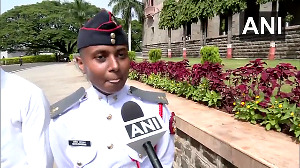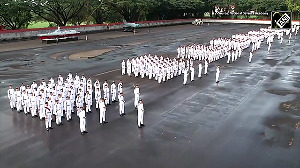 “You cannot bring the entire institution (of judiciary) to a grinding halt,” the Supreme Court on Friday told the government while expressing anguish over the delay in appointment of judges in high courts despite recommendations made by the collegium in this regard.
“You cannot bring the entire institution (of judiciary) to a grinding halt,” the Supreme Court on Friday told the government while expressing anguish over the delay in appointment of judges in high courts despite recommendations made by the collegium in this regard.
“Courts rooms are locked down. Do you want to lock down the judiciary,” a bench headed by Chief Justice T S Thakur said, adding, “You cannot bring the entire institution to a grinding halt.”
Maintaining that the appointment process “cannot be stalled” due to non-finalisation of the Memorandum of Procedure, it criticised the tardy progress in processing files pertaining to judges’ appointment and even warned that it may summon the secretaries of the Prime Minister’s Office and the ministry of law and justice to ascertain the factual position.
“There should not be any deadlock. You have committed to process the files for appointment of judges without finalisation of the MoP. Finalisation of MoP has nothing to do with the appointment process in the judiciary,” the bench, which also included Justices D Y Chandrachud and L Nageswara Rao, said.
Referring to the deficiency of judges in various high courts, it said that in Karnataka high court, several court rooms were locked because there were no judges.
Attorney General Mukul Rohatgi, appearing for the Centre, said that non-finalisation of the MoP was one of the issues and assured the bench that more progress will be seen in the near future on the appointment of judges.
The court fixed the matter for further hearing on November 11.
The Centre had on September 14 told the apex court that there was “no blame game” or “logjam” in appointments and transfer of judges for higher judiciary but blamed the high courts for “pretty much delaying” in starting the process.
Earlier, the apex court had said it would not tolerate “logjam in judges’ appointment” and would intervene to “fasten accountability as the justice delivery system is collapsing”.
The bench had said that if the government had reservation about any name, it could always come back to the collegium. The Attorney General had also pleaded that no notice should be issued for the time being on the PIL filed by 1971 war veteran Lieutenant Colonel Anil Kabotra on the issue, saying he would get back with the facts and figures.
The PIL has referred to the huge backlog of cases and vacancies in the judiciary and sought a direction to the authorities in this regard.
Kabotra, in his PIL, has sought a direction to ministry of law and justice to take “immediate steps” to facilitate filling up of existing vacancies in the judiciary across the country.
He has also sought a direction to consider and implement 245th report of the Law Commission on reforms in judiciary and to increase the judges’ strength and infrastructural facilities in courts in the country.
The plea has further said “the respondent (Centre) is duty-bound to facilitate filling up of existing judges strength across the country and to consider increasing the same substantially in terms of the Law Commission’s report.”











